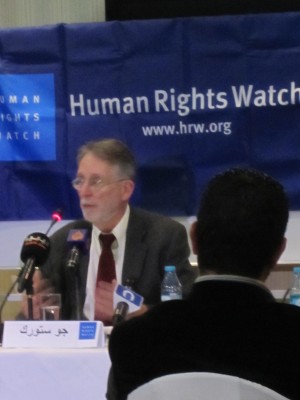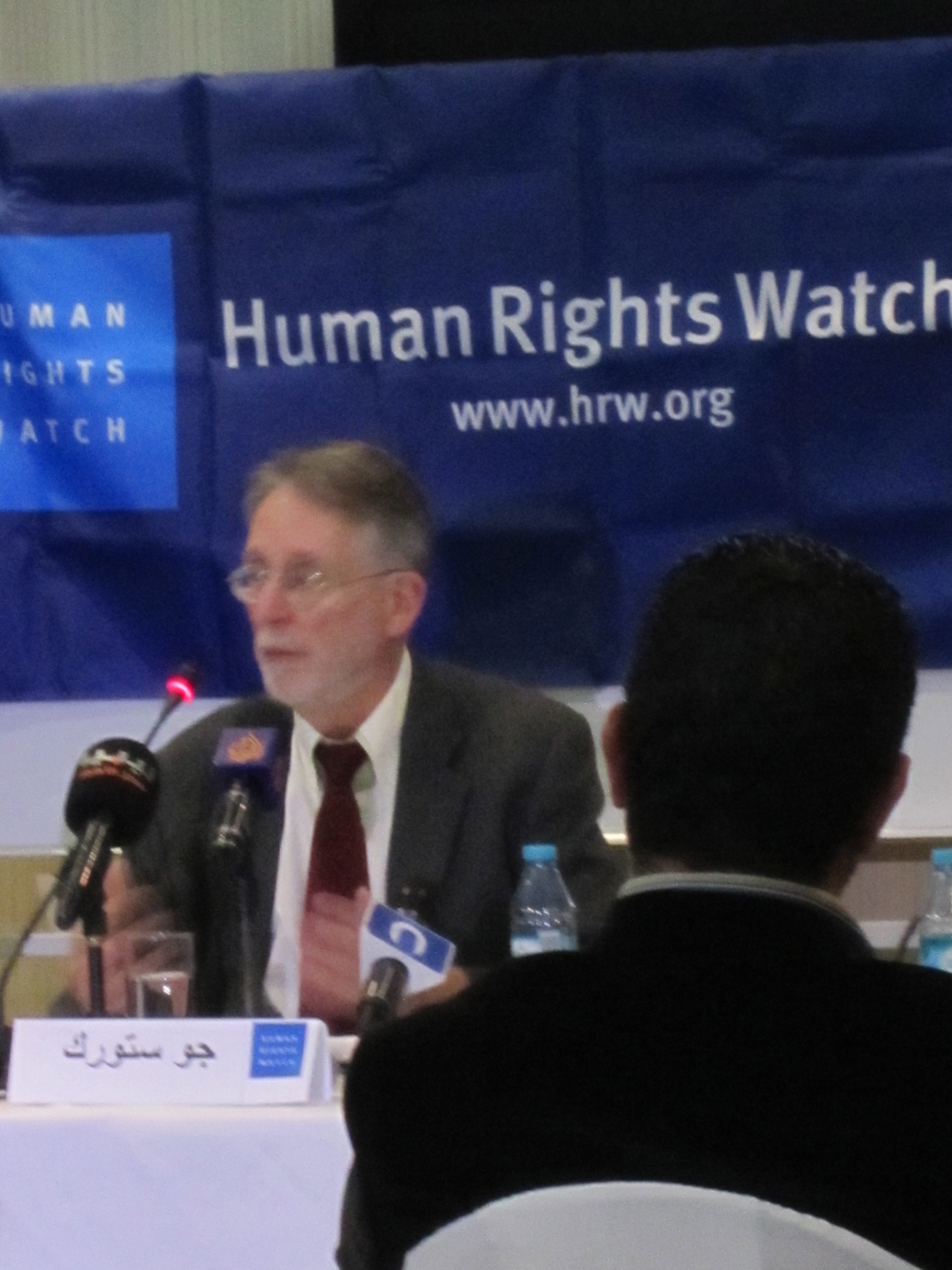By Tom Westcott.

Tripoli, 6 February 2013:
The Minister of Justice, Salah Marghani, today admitted the slow progress made by the new government, . . .[restrict]and expressed concern at human rights abuses in Libya during 2012.
“The Ministry of Justice feels very saddened that the new Libya has so far failed expectations of the Libyan people who revolted against the tyranny of the Gaddafi regime, in the hope that the new Libya would never allow human rights abuses to go unchecked,” the Minister said in a statement.
“The Ministry expresses grave concern about the recorded human rights abuses in 2012 and unequivocally condemns such evil practices,” he said, adding: “The Ministry still hopes that this will change, and change soon.”
His statement, read out at the Human Rights Watch press conference, was a response to the organisation’s 2012 World Report that revealed that Libya is still plagued by serious rights abuses nearly a year and a half after the overthrow of Qaddafi. HRW said today that, during 2012, they had “documented torture and deaths in detention centres run by both the state and armed groups.”
Marghani said that the Ministry of Justice did not contest the report’s findings and said it would take measures aimed at “ending or drastically reducing such unacceptable practices.”
Measures, he said, would include raising awareness across the country of the grave consequences of violations to basic human rights. There would also be greater efforts to record, report and investigate abuses.
“The Ministry admits that the level of prosecution and holding perpetrators accountable is currently still too low and unacceptable,” Marghani said.
He said the Ministry planned to take “the necessary measures to end all violations and bring detention places under actual and full control of the judicial police,” adding that detention centres outside the control of the Ministry would be criminalised.
“Cooperating with activists and human rights societies is central to the Ministry’s policies,” Marghani said, going on to promise to give such bodies “open authorisations to visit prisons any time.”
Finally, he said that laws would be put in place “on transitional justice, prohibiting trials of civilians in front of military courts and preventing torture.” He said this would promote reconciliation and enable trials to take place in Libya without compromising international standards.
Marghani said that the Libyan government, and the Ministry of Justice in particular, had no illusions about the challenges of its mission to turn Libya into a country with the rule of law and respect for human rights.
“We firmly believe that this is achievable due to the support that the government enjoys among the Libyan people, as evidenced by the drop of reported torture, and deaths under torture in the first month of 2013, as well as the gradual taking over of detention centres.”
Hanan Salah, from HRW, told the Libya Herald: “It’s an impressive statement and quite a commitment.” [/restrict]








